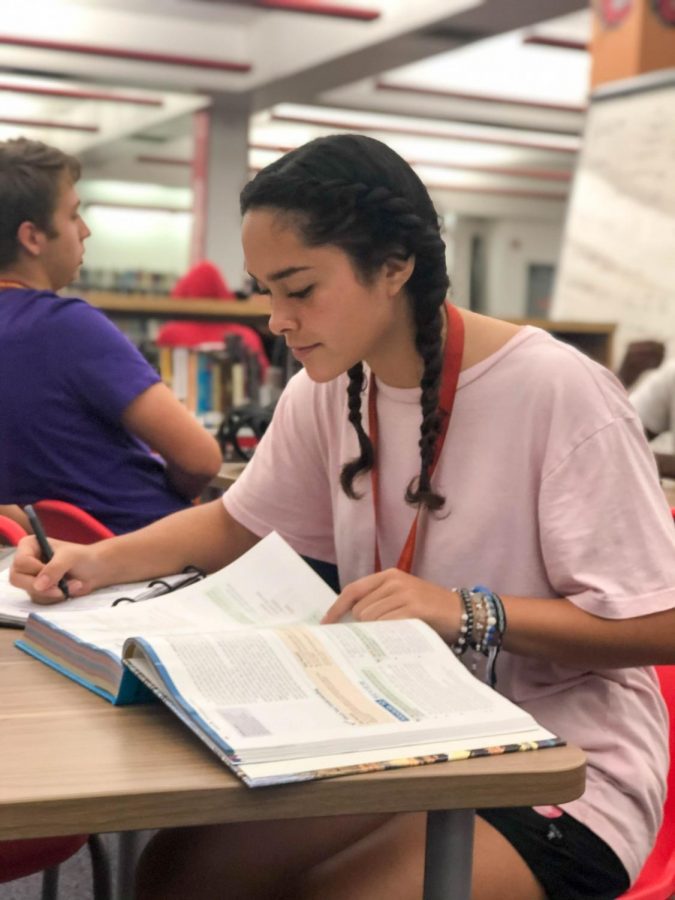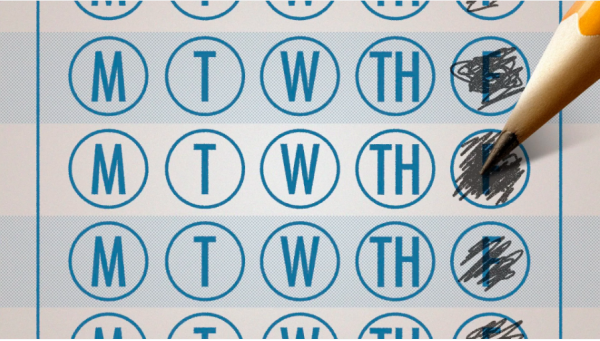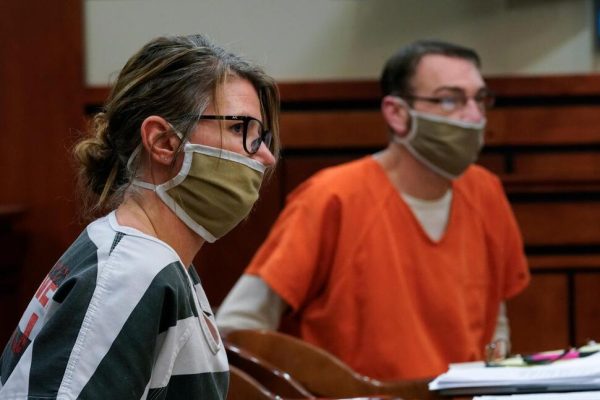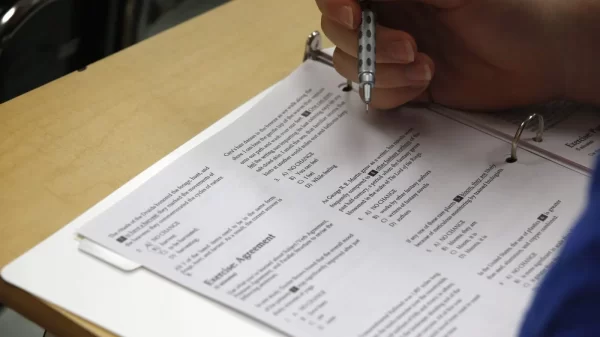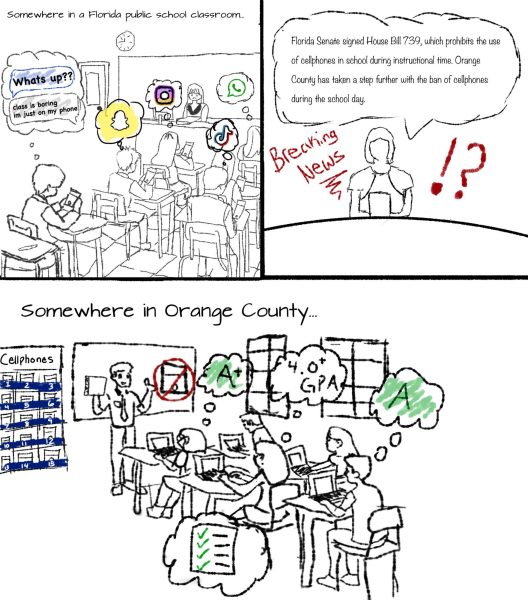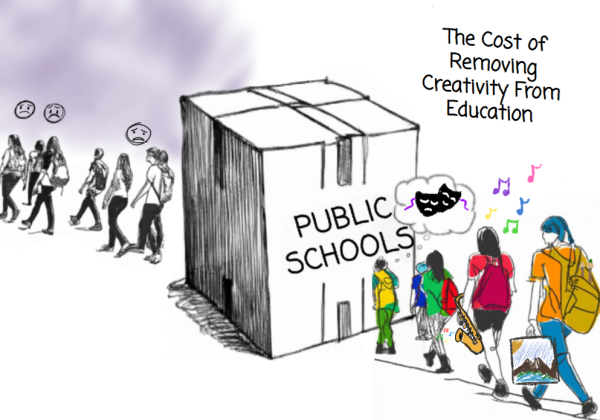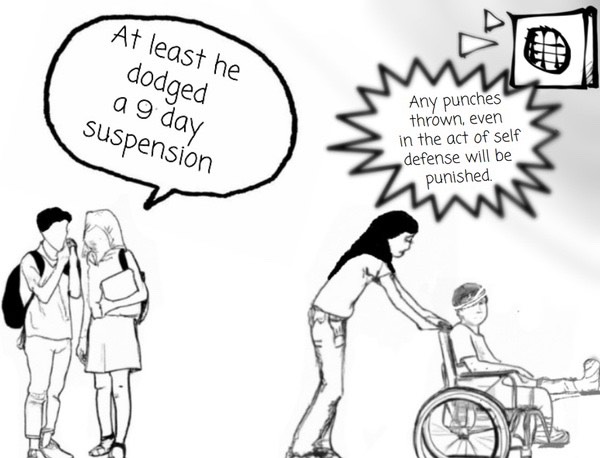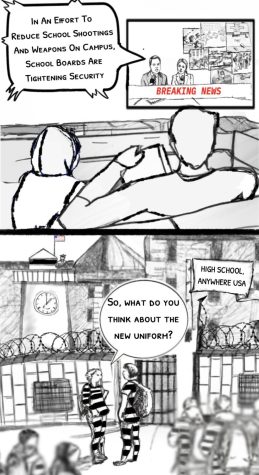Florida’s Book Ban Crushes the Opportunity to Learn Empathy
Senior Almendra Gutierez reading her textbook in the South Broward High School library.
May 25, 2023
When I was 10 years old, I went into my elementary school library and walked out with “The Hate U Give,” a novel by Angie Thomas. In the book, the main character, Star, explores the relationship she has with her race and identity while attending a predominantly white school where she experiences discrimination from her peers.
The novel exposed me to the harsh reality minorities face in America at a young age, and opened my eyes to the everyday comments white people make to minorities thinking they aren’t racist. It prevents me from participating in that kind of discrimination.
Sadly, this kind of self-reflection and viewpoint will not be available to Florida students anymore.
On July 1, 2022, House Bill 1467, which requires schools to be ‘transparent’ about what reading material is allowed in school libraries and media centers, was signed into law by Governor Ron DeSantis.
By ‘transparent,’ the legislature means, among other things, that they require librarians and media specialists to go through an annual training on what reading materials can be made available to students. Any community member can get a book removed by objecting to the contents in the writing.
According to House Bill 1467, “[Book selections must be] appropriate for the grade level and age group.”
What the bill does not state directly is that the majority of the books banned targeted authors of color.
According to Pen America, a nonprofit organization’s ‘Banned Book Update’, “30% of the unique titles banned are books about race, racism, or feature characters of color.” The nature of this banning will be the cause of further ignorance within our communities.
‘The Hate U Give,’ along with 874 other unique books with similar themes are no longer allowed in school libraries on account of them being ‘too inappropriate.’
While it can be argued that a novel containing themes of racism and police brutality may be too serious for elementary, or even middle schoolers, I don’t see a reason why “The Hate U Give” shouldn’t be allowed in a high school. By that time, minorities have already experienced some form of racism, making the content more than appropriate for them.
Before the ban, to find a student in my school library who was actually there to read was a rare enough occurrence. But after, not even the media center regulars were checking out books as often as they used to. This is simply because their selections have been cut in half.
People who genuinely want to expand their knowledge through reading will be less likely to do so when the only books allowed in the library all comply with a select point of view. ‘Speak’, ‘The Poet X’, and ‘Clap When You Land’ are all critically acclaimed books that are no longer allowed in Florida schools. Whether a person enjoys nonfiction or fantasy, the appeal to reading is that the reader is exposed to new ways of thinking and new ideas.
HB 1467 states, “[Provided media center materials must be in] support of state academic standards and aligned curriculum.”
The attractiveness of reading is drastically tampered when not a single book available offers a different perspective that encourages readers to see things from another’s view.
We must also consider the effects this ban will have on writers in the future. Most authors write because they are passionate about it. But passion doesn’t put food on the table. Authors need money just like any other person, and this ban will prohibit writers who cover ‘controversial’ topics. They will be disinclined to write anything that may hinder their ability to sell their work, restraining their creative freedom.
My 10 year old self did not find “The Hate U Give” to be too heavy of a topic to handle, and if anything it educated me on microaggressions and taught me to be more compassionate for other people’s situations.
If this ban is maintained, Florida students will not have the same opportunity as those in the past to expand their worldview through reading.

